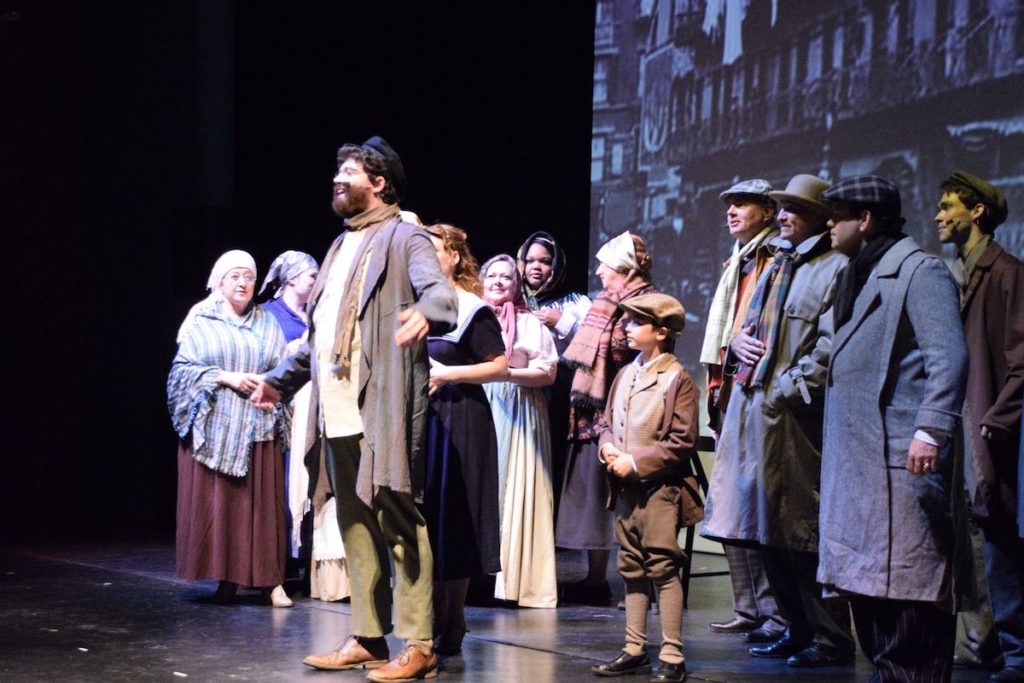
In 1920, a Jewish family moved from New York to Union City, Tennessee. It was a novel enough occurrence that, nearly a century later, their story has been adapted into a musical, called “Jew Store,” which is coming through Nashville this weekend.
And while the name may sound provocative, it also illuminates an often forgotten piece of Southern history.
The story departs from the typical narrative about Jewish immigrants in the early 1900s, which usually focuses on people who moved from Europe to Manhattan, lived in packed tenements, worked in factories and slowly moved up in the city.
“But what happened was, a lot of those Eastern European Jewish immigrants actually didn’t necessarily stay in New York,” said Jay Kholos, the writer and director of “Jew Store.”
The musical is based on a 1998 memoir of the same name by Stella Suberman. Kholos was struck by Suberman’s parents’ unconventional decision to move to Union City, a rural part of West Tennessee where they were clearly outsiders.
“This is the true story about a family that opened up a dry goods store and dealt with people that had never really seen a Jewish person before, let alone met one,” he said.
As both the memoir and musical relay, the family was worried about acts of anti-Semitism, which did occur. They had some scares from the KKK and faced discrimination when trying to find a location for their new store. But they were also worried about cultural isolation — being in a place where no one else around was like them.
“The mother never wanted to leave New York,” Kholos said. ” ‘What’s going to happen with Joey? Will he be Bar Mitzvahed? Will Miriam meet a nice Jewish boy? Not in a town where we are the only Jewish people.’ “
In one musical number, “A Glass Of Tea,” the mother laments the fact that she can’t sit down for a drink with the rabbi’s wife — a usual activity for her — because there’s no rabbi in town.
Kholos says he was drawn to the name of the memoir when he first heard about it. Calling something a “Jew store” sounds cringe-worthy by today’s standards of language, but this really was what some people called their local Jewish merchants back then. And it wasn’t just in Union City — these pockets of immigration and commerce popped up across Tennessee, the South and rural America in general, according to the Institute of Southern Jewish Life.
Rick Suberman, Stella’s son, says
his mother’s memoir resonates with a large swath of people who remember this era. It even resonated with Dolly Parton, who, according to Suberman, bought and held the film rights for several years.
“Every little town in the South had a Jew store,” Suberman said. “When I talk to my non-Jewish friends, they still know this store. I mean, in some places, they still exist. It’s everybody’s history in the South.”
Even for those who aren’t familiar with this slice of history, Kholos says the story is perpetually relevant — one of religious acceptance among neighbors winning out over intolerance and fear.
The musical runs in Nashville on
Dec. 9 and 10 at the Gordon Jewish Community Center.


